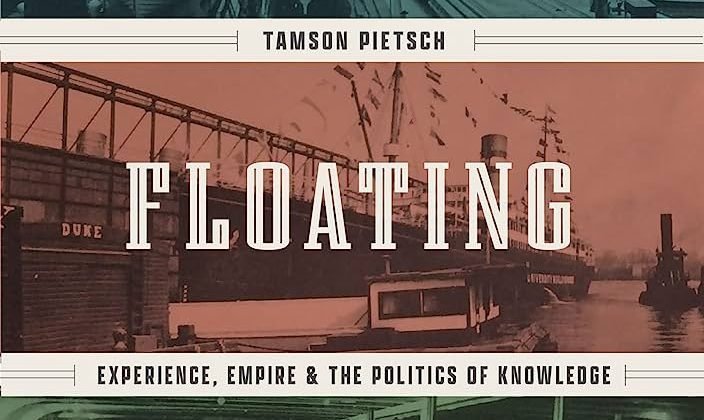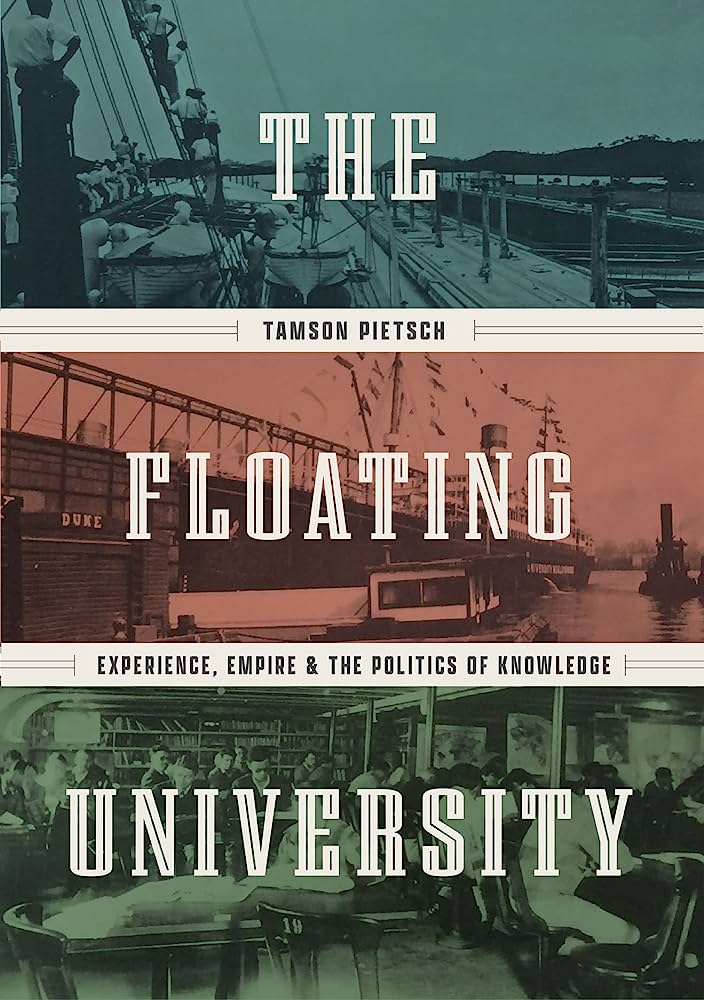

Tamson Pietsch is Associate Professor in Social and Political Sciences and Director of the Australian Centre for Public History at the University of Technology Sydney. This interview is based on her new book, The Floating University: Experience, Empire, and the Politics of Knowledge (University of Chicago Press, 2023).
JF: What led you to write The Floating University?
TP: While working on an entirely different project, I came across an old pamphlet in the back of a book. It advertised an eight-month cruise that was designed to enable American college students to “develop the ability to think in world terms”. Direct personal experience in and of the world was, its organisers believed, a more effective way of delivering this education than passive indirect engagement via textbooks and lectures. Sailing from New York in September 1926 and paying visits to world leaders including Mussolini, the King of Siam, Gandhi and the Pope, the Floating University’s voyage also attracted the attentions of the American press, who saw the students’ drinking and misbehavior in the back alleys and bars of the world’s port-cities as incompatible with education. I wanted to know more about this fascinating venture, but I soon found out that the trip was virtually absent from the history books. So I set about correcting that.
JF: In 2 sentences, what is the argument of The Floating University?
TP: My book argues that – precisely because it had been ignored by historians – the Floating University world cruise opens a window onto what counted as legitimate knowledge in the 1920s, exposing a contest between direct personal experience and academic expertise that has since fallen away from our understanding of how universities have come to have authority over knowledge. In the process, the book tells a story about expanding US power in the interwar period, showing that what the students onboard ultimately learned, were lessons in empire.
JF: Why do we need to read The Floating University?
TP: I hope The Floating University is fun to read. In many ways it is a ribald tale of rich young Americans on a world tour in the jazz age. But the book argues that the voyage – and its apparent failure – opens a window onto the way universities came to have authority over knowledge in the twentieth century. Too often expertise is cast as a neutral or natural phenomenon, but expertise also has a history that is intimately connected to shifts in the nature and mode of power and rule. Thinking about why the Floating University was deemed a failure in the 1920s highlights the failure in our own times to ground knowledge-claims in ways that are recognizable to those outside the community of academically authorised experts. At a time when political actors are challenging experts and their truth-claims, and in the context of the need for rapid and transformative social change to meet the challenges of the environmental crisis, the stakes of securing this recognition could not be higher.
JF: Why and when did you become an American historian?
TP: I trained as a historian of the British Empire, and my first book was centred on academic networks in that context. But I turned to American history about ten years ago as I became interested in the relationship between higher education and the extension of American power abroad, especially in the interwar period. Universities, empire, expertise and the social are therefore themes that run through both these projects, and the more I work on American history the more it strikes me that there are many useful cross-fertilisations between these two fields.
JF: What is your next project?
TP: I am based in Sydney Australia, and – carrying forward some of the same themes underpinning The Floating University – together with a group of colleagues I am working on a history of expertise in the interwar period in Australia. That period is often written about as a time of contest between labour and capital in the shadow of the First World War. But we are finding that the 1920s and 1930s were also a time in which, led by returned solider-experts, specialised knowledge and expertise assumed a central role in all aspects of political, social, and economic life, laying the foundations of the twentieth century nation.
JF: Thanks, Tamson!